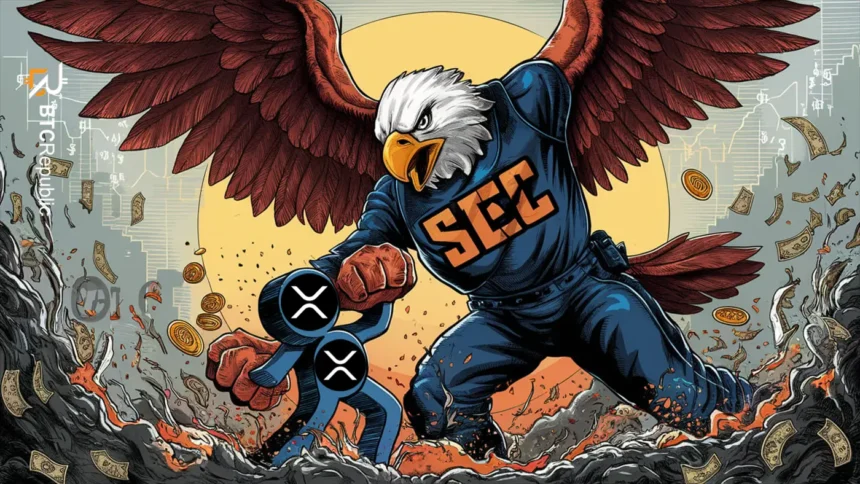Ripple’s Labs Inc. has been ordered by the Securities and Exchange Commission (SEC) to pay a $125 million civil penalty.
The SEC said the firm sold its XRP token to institutional investors without carrying out a proper registration of the tokens.
This has become one of the most followed legal cases in the cryptocurrency industry.
Industry Stakeholders Rallied Around Ripple
However, the penalty was a small fraction of the $2 billion the SEC has slammed Ripple, which could be something positive for other crypto firms with various cases with the agency.
The Ripple case began in December 2020, when the COVID-19 pandemic was still at its peak. The SEC filed a lawsuit against the company and its executives, Chief Executive Officer Bradley Garlinghouse and Co-founder Christian Larsen.
SEC accused Ripple of not properly informing its users, which enabled them to sell $1 billion worth of XRP tokens to people who do not have all the information about the token.
The crypto industry rallied in support of Ripple following the lawsuit. Over a dozen advocacy groups, including the Blockchain Association and the Chamber of Digital Commerce, supported Ripple’s position.
They also showed their support by writing to Analisa Torres, the US District Judge, explaining why Ripple should not be punished.
Other crypto firms have also faced enforcement actions. Firms like Coinbase Inc., Binance Holdings Ltd, and Terraform Labs have been in the wrong books of the SEC for various alleged breaches. But Ripple’s case has been seen as a defining factor in the crypto industry.
It has received the highest publicity, and many industry stakeholders believe the case will decide the future proceedings of other companies in the industry.
It is the case that will probably decide whether crypto assets are securities that require their creators to register them with the SEC and provide all the necessary information to investors.
Ripple’s Case Is A Positive Development In The Crypto Industry

The SEC carried out a “Howey test” to contend whether XRP was a security. However, Ripple argued that XRP did not meet the test because there was no pooling of profits.
Last year July, Torres discovered that XRP was not a security when sold to the general public but was a security when it was sold to institutional investors.
He noted that most transactions were done through trading algorithms on exchanges via blind transactions. He also pointed out that there was no evidence that retail buyers share in Ripple’s profits.
The industry has viewed the decision as a positive outcome for companies in the cryptocurrency space.
While the case is still not concluded, there are suggestions that the initial fears about the Ripple penalty have been quashed following the light fine the SEC imposed on the company.










